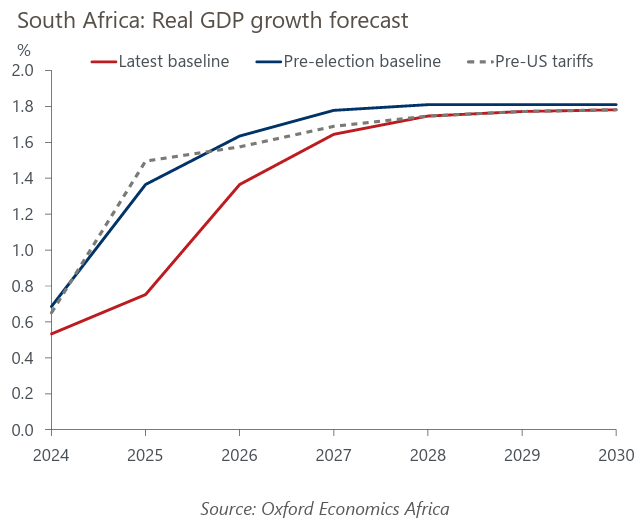Research Briefing
08 Jul 2025
A year older, none the wiser ‒ a fractious GNU stumbles on
South Africa’s Government of National Unity (GNU) has struggled over the one year of its existence, largely because of the ad hoc manner in which it was assembled. The prospect of major reforms is dim and the political uncertainty is weighing on private sector investment.
- The failure to hammer out a comprehensive coalition agreement after the 2024 general election, including a dispute-resolution mechanism, is the coalition’s ‘original sin’ and the fault in its DNA. Little has been done to address the dysfunction and the growing trust deficit between the African National Congress (ANC) and Democratic Alliance (DA), the second-largest party.
- The ANC dares the DA to walk out, while the DA dares the ANC to force it out – neither wants to be blamed for breaking the coalition. Both plausible scenarios – a squabbling GNU or a precarious minority government – are bad news for a policy agenda. The chances of major reforms are slim as long as President Cyril Ramaphosa continues an appeasement strategy.
- The next local government elections, expected in 2026 or early 2027, will weigh on the fragile equilibrium within the GNU as constituent parties look to distinguish themselves from their rivals, drive wedge issues and, at an extreme, consider quitting the coalition to strengthen their positions ahead of the elections. Elective processes in the DA in 2026 and the ANC in 2027 (where Ramaphosa will be replaced as party leader) will also be relevant.

You might also be interested in
Tags:
Download Report Now
[autopilot_shortcode]
